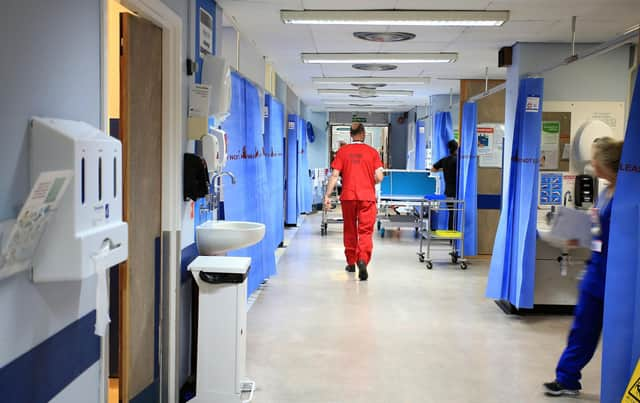The University Hospitals of Bristol and Weston: all the key numbers for the NHS Trust in October


Tens of thousands of patients were waiting for routine treatment at the University Hospitals of Bristol and Weston in October, figures show.
The figures come as the King's Fund warns the NHS is "bursting at the seams", as winter pressures mount up.
Advertisement
Hide AdAdvertisement
Hide AdNHS England figures show 62,462 patients were waiting for non-urgent elective operations or treatment at University Hospitals Bristol and Weston NHS Foundation Trust at the end of October – up slightly from 61,870 in September, and 53,743 in October 2021.
Of those, 5,989 (10%) had been waiting for longer than a year.
The median waiting time from referral at an NHS Trust to treatment at the University Hospitals of Bristol and Weston was 15 weeks at the end of October – down from 16 weeks in September.
Nationally, 7 million people were waiting to start treatment at the end of October.
Advertisement
Hide AdAdvertisement
Hide AdDanielle Jefferies, from the King’s Fund, said: “The latest figures show an NHS bursting at the seams as services head into winter struggling to meet sharply rising demand while keeping patients safe.
"It is easy to become numb to dire NHS performance figures, but the health service really is facing the toughest pressures since modern records began," she added.
Separate figures show 1.5 million patients in England were waiting for a key diagnostic test in October – a fall from 1.6 million in September.
At the University Hospitals of Bristol and Weston, 16,952 patients were waiting for one of 11 standard tests, such as an MRI scan, non-obstetric ultrasound or gastroscopy at this time.
Advertisement
Hide AdAdvertisement
Hide AdOf them, 5,875 (35%) had been waiting for at least six weeks.
Dr Susan Crossland, immediate past president of the Society for Acute Medicine – a representative body for hospital staff – said of the latest NHS performance data that "such shocking levels of performance are now commonplace" and a sign of "just how far the NHS has fallen".
“Standards are at all-time lows for both patients and staff, and it is demoralising for colleagues across the country and the UK as a whole who are working tirelessly against the tide to deliver a reasonable quality of care,” Dr Crossland added.
Other figures show cancer patients at the University Hospitals of Bristol and Weston are not being seen quickly enough.
Advertisement
Hide AdAdvertisement
Hide AdThe NHS states 85% of cancer patients urgently referred by a GP should start treatment within 62 days.
But NHS England data shows just 48% of patients urgently referred by the NHS who received cancer treatment at the University Hospitals of Bristol and Weston in October began treatment within two months of their referral.
That was down from both 65% in September, and 76% in October 2021 last year.
Professor Julian Redhead, national clinical director for urgent and emergency care for NHS England, said the service is facing a "perfect storm".
Advertisement
Hide AdAdvertisement
Hide Ad“Despite the ongoing pressures on services which are exacerbated by flu hospitalisations, issues in social care meaning we cannot discharge patients who are ready, and record numbers needing A&E, staff have powered through to bring down some of our longest waits for care," he continued.
Professor Redhead added that the organisation is hoping to alleviate some of the pressures with a new respiratory infections hub, alongside an expansion of support for those suffering mental health crises.